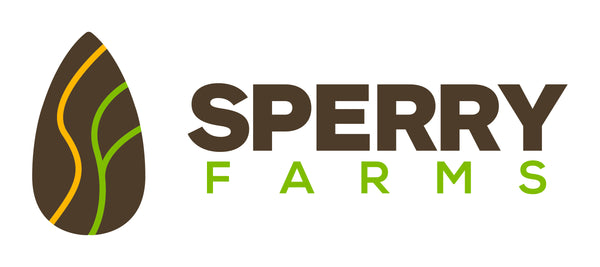Regenerative Farming
Sperry Farms has a long history of implementing regenerative farming practices into our operation, well before the term "regenerative" was even a buzz word. For the past 15 growing seasons, common practices have included maintaining winter native vegetation down our tree rows, compost applications, and cover crop plants have all been seasonally used on our farm.
In 2019, we furthered our commitment to regenerative farming, and embarked on the transition to organic, at 125 acre Roberts Ferry Ranch. These practices at the Roberts Ferry Ranch include no use of herbicides, pesticides, or petroleum based fertilizers. Replaced are practices that build soil health, like the use of composts, manures, compost teas, and cover crops. These practices help improve soil structure, store carbon, and promote the growth of healthy soil microbes.

Pest management without pesticides on our organic ranch is obtained through mating disruption pheromones, bacteria strains that limit insect/ fungal growth, as well as more robust natural insect predator populations that have been able to thrive and multiply without the use of pesticide applications. Placing numerous owl boxes throughout our orchard help keep a health population of barn owls onsite. These owls help keep the population of gophers and rodents in health check.

Permanent pollinator habitat and planting an annual winter cover crop mix of diverse flowering species have been implemented at the organic ranch, and help create early winter/ spring forage for bees we contract to pollinate our almonds. The pollinator habitat planted helps give year around forage and nesting sites to our native pollinators. Protecting our pollinators has been a strong focus for Sperry Farms. Our work has led to our Roberts Ferry Ranch being granted a "Bee Friendly Farm" from the nonprofit Pollinator Partnership.

